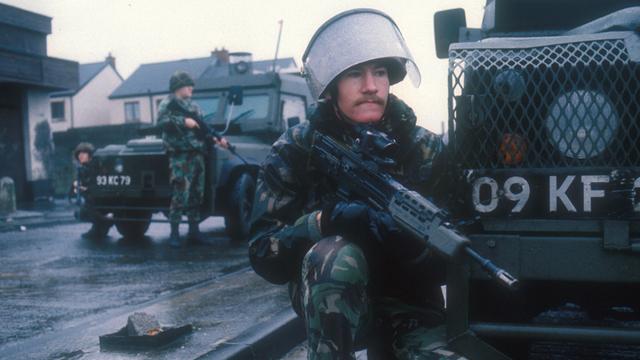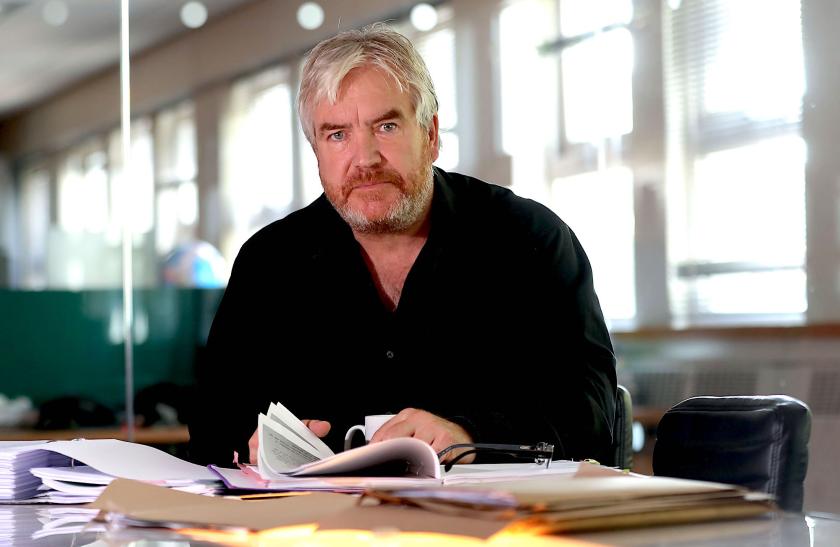“The Troubles” is a polite euphemism for the ferocious storm of sectarian violence and political chaos which convulsed Northern Ireland for 30 years, before being brought to a close by 1998’s Good Friday Agreement. Irish journalist Darragh MacIntyre fronts this seven-part history of those fearful days, and the first instalment of Spotlight on The Troubles: A Secret History (BBC Four) took us from the first stirrings of Catholic versus Protestant conflict in the mid-Sixties to the full-blown horrors of murders, bombings, mass internment and the British Army’s increasingly bloody involvement.
It's hard to believe now that when British soldiers first arrived they were enthusiastically welcomed by the Catholic population, who saw them as protection against the pro-loyalist Royal Ulster Constabulary. Depressingly, support for the Army steadily turned to hatred via such incidents as 1970’s Falls Road Curfew in Belfast, the mass arrests of mostly Catholic nationalists in Operation Demetrius (1971) and the hideous nadir of Bloody Sunday in 1972 (British soldiers in Northern Ireland, pictured below).
 Though terrorist outrages have become a dismal fact of contemporary life, the remorseless savagery of the Irish conflict is still shocking to behold, all the more so since this was all happening in our supposedly united kingdom. MacIntyre’s gripping narrative is punctuated with steadily rising casualty figures – 68 dead in March 1971, 175 in November 1971, 238 in January 1972 – and news footage of soldiers beating street protesters or a bloodied woman blinded by a rubber bullet were reminders that this was, in effect, a full-blown war. The archive images are often grainy and blurry, but this lends them extra historical force.
Though terrorist outrages have become a dismal fact of contemporary life, the remorseless savagery of the Irish conflict is still shocking to behold, all the more so since this was all happening in our supposedly united kingdom. MacIntyre’s gripping narrative is punctuated with steadily rising casualty figures – 68 dead in March 1971, 175 in November 1971, 238 in January 1972 – and news footage of soldiers beating street protesters or a bloodied woman blinded by a rubber bullet were reminders that this was, in effect, a full-blown war. The archive images are often grainy and blurry, but this lends them extra historical force.
MacIntyre has ferreted out interviews with participants from all sides, from British army officers to politicians and former IRA men, and you get the sense that nobody involved has slept very easily since. The political background was deftly sketched in, with successive Irish Prime Ministers (Terence O’Neill, James Chichester-Clark and Brian Faulkner) all trying to put on a brave face as the situation disintegrated catastrophically before their eyes.
Particularly chilling was previously un-broadcast footage of young IRA man Martin McGuinness – later a minister in the Northern Ireland Assembly – involved in preparing a car bomb which exploded in Derry, an event which prompted Westminster to take over security powers in Northern Ireland, leading to the collapse of the Stormont government. “It was a great achievement,” according to another of MacIntyre’s interviewees, former IRA member Des Long. Meanwhile, the claim by a former army officer that the Reverend Ian Paisley funded a loyalist terror group has already caused a furore in Ireland. It’s likely that MacIntyre has plenty more startling revelations to come.















Add comment